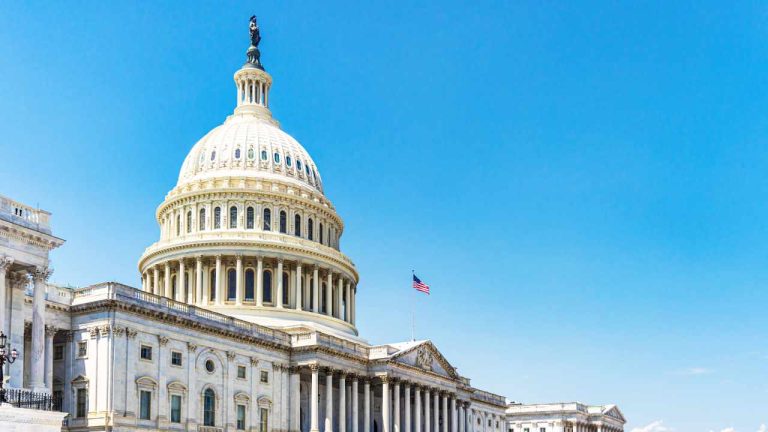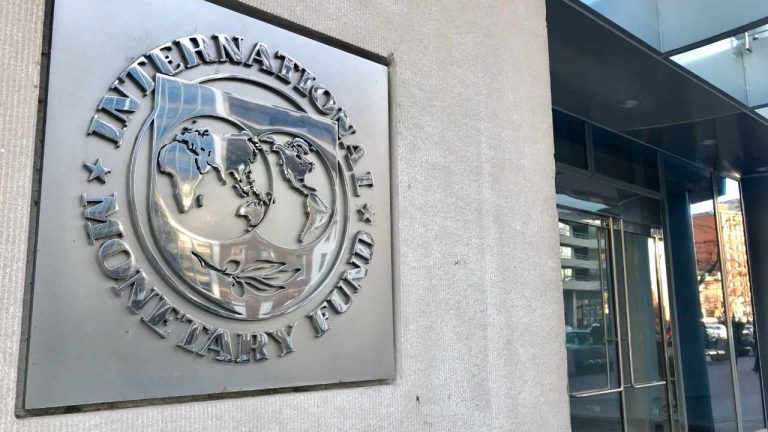 Russia’s State Duma has advanced a bill to regulate cryptocurrency mining, aiming to curb illegal activities and promote investment and employment. Proposed by the chairman of the Duma Committee on Financial Markets and supported by key deputies, the bill mandates strict guidelines for miners, including registration and government oversight. If passed, the law will take […]
Russia’s State Duma has advanced a bill to regulate cryptocurrency mining, aiming to curb illegal activities and promote investment and employment. Proposed by the chairman of the Duma Committee on Financial Markets and supported by key deputies, the bill mandates strict guidelines for miners, including registration and government oversight. If passed, the law will take […] U.S. Congressman Matt Gaetz has introduced a bill to allow federal income taxes to be paid with bitcoin. Inspired by El Salvador’s success with the cryptocurrency, the lawmaker believes this move will modernize the U.S. tax system, promote innovation, and maintain America’s technological leadership. Lawmaker Proposes Bill to Allow Federal Income Taxes to Be Paid […]
U.S. Congressman Matt Gaetz has introduced a bill to allow federal income taxes to be paid with bitcoin. Inspired by El Salvador’s success with the cryptocurrency, the lawmaker believes this move will modernize the U.S. tax system, promote innovation, and maintain America’s technological leadership. Lawmaker Proposes Bill to Allow Federal Income Taxes to Be Paid […]

A leaked email shows Democratic Party leaders “strongly oppose” two Republican-led crypto bills, but will not force House members to vote no on them.
United States House of Representatives Democrats will not be forced to vote against two pro-crypto bills expected to come up for a floor vote this week — though they are strongly being urged to do so.
A May 20 email from Democrat Party leaders to House members shared by POLITICO shows the party did not urge members to vote no on the Republican-led Financial Innovation and Technology for the 21st Century (FIT21) Act and the CBDC Anti-Surveillance State Act — H.R. 4763 and H.R. 5403 respectively.
Both bills have been perceived as positive for the crypto industry if passed.
 Congressman Patrick McHenry says bitcoin is unstoppable and every regime that’s tried to shut it down has failed. He emphasized that the U.S. must become a leader in digital assets, noting that two congressional bills offer a path toward clear regulations. Two Pieces of Legislation Could Provide Greater Clarity in Digital Assets Congressman Patrick McHenry […]
Congressman Patrick McHenry says bitcoin is unstoppable and every regime that’s tried to shut it down has failed. He emphasized that the U.S. must become a leader in digital assets, noting that two congressional bills offer a path toward clear regulations. Two Pieces of Legislation Could Provide Greater Clarity in Digital Assets Congressman Patrick McHenry […] The International Monetary Fund (IMF) has urged Ukraine to finalize its crypto legislation, the country’s Deputy Minister of Digital Transformation for IT industry development has revealed. “In the face of war, we have to exploit the full range of opportunities and develop new sectors of the economy,” he stressed, adding that “Legalization of the crypto […]
The International Monetary Fund (IMF) has urged Ukraine to finalize its crypto legislation, the country’s Deputy Minister of Digital Transformation for IT industry development has revealed. “In the face of war, we have to exploit the full range of opportunities and develop new sectors of the economy,” he stressed, adding that “Legalization of the crypto […]
Coinbase’s global tax VP has slammed Congress for the controversial crypto tax provisions rushed into the infrastructure deal, warning the bill could impact 60 million Americans.
Coinbase’s Global VP of tax, Lawrence Zlatkin, has taken aim at the rushed cryptocurrency provisions added to Congress’ bipartisan infrastructure bill “at the last minute,” slamming lawmakers for hastily inserting amendments that could impact “60 million Americans.”
In an Aug. 21 blog post taking aim at an Aug. 19 editorial article from Bloomberg that praised the infrastructure bill’s crypto provisions, Zlatkin criticized the lack of opportunity for public discourse regarding the legislation, estimating that 20% of the U.S. population are invested in digital assets:
“Today, around 60 million Americans own crypto — roughly one-fifth of the entire U.S. population. Those Americans, and the entire crypto ecosystem, deserve more dialogue than midnight provisions inserted at the last minute.”
Zlatkin notes that outrage over the bill’s language extended beyond the confines of the crypto industry, noting estimates that the popular “public outcry” saw senators contacted by nearly 80,000 people within “just a few days.”
In particular, the Coinbase executive highlighted the broad definition of digital asset “broker” included in the bill — which could impose strict reporting requirements on network validators and software developers who would be unable to comply with their obligations under the bill in its current form.
“As long as the statute says that software developers, miners, stakers must do the impossible, there is no lawyer who would advise them to risk operating in violation of laws whose penalties for non-compliance would easily bankrupt them,” he said, adding:
“This will harm innovation and stifle the potential of a hugely important technology at its earliest stages of development [...] Tax policy should be thoughtful and deliberate. Broad overreach is a regulatory mistake.”
Zlatkin added that digital asset brokers should be subjected to the same third-party reporting requirements as mainstream brokerage firms.
Related: Crypto language in the infrastructure bill is a political shell game, says Cointelegraph GC
The controversial infrastructure bill passed the Senate earlier this month, onlookers are hopeful there may be opportunities to amend the legislation as it moves to the House for scrutiny in the coming months.

Former FDIC regulator, Jason Brett, argues that U.S. lawmakers have pivoted away from private stablecoins to focus on regulating decentralized digital assets this year.
The United States Congress appears to be pushing for greater regulatory clarity regarding crypto assets, having proposed18 bills concerning blockchain and cryptocurrency during 2021 so far.
According to analysis published by former Federal Deposit Insurance Corporation regulator, Jason Brett, on August 22, the current 117th Congress has broken from its predecessor in focusing on regulating decentralized assets rather than private stablecoins such as Facebook’s Diem project — formerly called Libra.
In July, Congress put forward the Digital Asset Market Structure and Investor Protection Act in a bid to create distinct statutory definitions for digital assets and digital asset securities respectively.
Although the bill is yet to pass through Congress, the legislation would mandate digital asset securities as the jurisdiction of the Securities and Exchange Commission (SEC), while the Commodity Futures Trading Commission (CFTC) would have the authority to regulate digital assets.
Brett asserts that of Congress’ digital asset bills, The Eliminate Barriers To Innovation Act has made the most progress since being introduced in March. The Act aims to establish a joint working group facilitating collaboration between the SEC and CFTC in regulating the blockchain and crypto sectors.
The legislation has already passed both Congress and the House of Representatives and is now awaiting the Senate according to the report.
However, not all of Congress’ digital asset bills have been well received by the industry, with last-minute amendments made to the bipartisan infrastructure deal in July including a sweeping definition of digital asset “brokers” that threatens to impose stringent counterparty reporting requirements for network validators and software developers.
Cointelegraph’s general counsel, Zachary Kelman, labeled the nebulous language in the infrastructure bill a political shell game whereby lawmakers seek to increase taxes without resorting to specifics regarding the collection.
The bill will now pass to the House of Representatives, where it likely will not be put to a vote until later this year.
Related: Elizabeth Warren compares 'bogus' crypto to 'legitimate' CBDCs in senate hearing
Congressman Tom Emmer has been among the most active in the digital asset space, having introduced three bills this year.
Emmer’s proposals included the Blockchain Regulatory Certainty Act — which would provide a safe harbor from money transmitter licensing and registration for blockchain service providers that have no control over tokens.
In July, he also proposed the Security Clarity Act seeking to lessen regulatory burdens for blockchain-based technology and reintroduced the Safe Harbor For Taxpayers With Forked Assets Act in May.